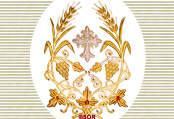
 |
|
||
|
Second Meeting of the Joint Commission for the Relations between the Oriental Orthodox Churches and the Russian Orthodox Church Moscow. September 4-6, 2001 |
|
OO Meetings
Other Dialogues
|
The Joint Commission for the relations between the Russian Orthodox Church (Chalcedon) and the Coptic, Syrian and Armenian Apostolic (Catholicosate of Cilicia) Churches, which belong to the family of Oriental (pre-Chalcedon) Churches, held its first session on March 20, and the second session on September 4-6, 2001, at the Department for External Church Relations of the Moscow Patriarchate. After fifteen centuries of division, the later 20th century was marked with the beginning of an intensive and fruitful theological dialogue between the Orthodox and the Oriental Churches, in which the Russian Orthodox Church took part for many years as a member of the pan-Orthodox representation. As a result of this dialogue, agreements were reached and signed by church representatives. The most important of them was "The Second Common Statement and Proposals to the Churches" (1990, Chambesy, Switzerland). It stated that the faith of the two families was essentially identical, while differing only in notions. This document was sent to the Churches for consideration and reception. As a result of this study, the Theological Commission recommended that the Bishops Council of the Russian Orthodox Church (1997) adopt a resolution on the need to clarify the Christological formulations contained in the document. To implement this resolution, the Holy Synod of the Russian Orthodox Church in its session on March 30, 1999, resolved that the Russian Orthodox Church begin a direct bilateral dialogue with Oriental Churches. The participants of the first meeting of the joint commission included, from the Oriental Churches: (Coptic Church) Metropolitan Bishoi of Damiette, secretary of the Holy Synod, Bishop Serapion of Western USA, Rev. Shenouda, Egypt. Syrian Church: Metropolitan Clemis Eugene Kaplan of the Western USA. Armenian Church: Archimandrite Nareg Alemezian, and Rev. Krikor Chiftjian, Lebanon. The Russian Orthodox Church was represented in the joint commission by nine delegates. On September 4th, the information on the history and development of each of the Oriental Churches was given by the representatives, Metropolitan Bishoy (Coptic), Metropolitan C. Eugene Kaplan (Syriac), and Archimandrite Nareg Alemezian (Armenian). Then the participants reviewed the process and analysis of the theological dialogue between the Russian and the Oriental Orthodox Churches by two reports read - one on behalf of the Non-Chalcedon Churches and the other on behalf of the Chalcedon Churches. On September 5th, analysis of the First Agreed Statement (St. Bishoy Monastery, Egypt, June 20-24, 1989) and the second Agreed Statement and suggestions to the churches (Chambesy, Switzerland, Sep. 23-28, 1990) was reviewed. At 2:00 pm, the Joint Commission members were received by Patriarch Alexy II of Moscow and All Russia and had a long and meaningful talk with him. Speaking about the significance of the bilateral dialogue of the Russian Orthodox Church with Oriental Orthodox Churches, His Holiness the Patriarch said that the beginning of bilateral talks did not call in question the significance of the pan-Orthodox dialogue which has been underway for the recent decades. The Russian Orthodox Church will continue participating in the dialogue of the Orthodox Churches with the Oriental Orthodox Churches on whole range of issues under discussion today, including pastoral and liturgical subjects. On the other hand, it is necessary to give a fresh impetus to the mutual study of theological traditions existing in the Orthodox and Oriental Churches, especially in the area of Christological terminology. In doing so, it is important to exert maximum efforts not to defend agreed documents or formulae, but rather to find agreement between our Churches on the questions of faith. The participants returned to their meeting and continued the discussion, summing up, and presenting recommendations. On September 6th, the meeting of the coordinating committee was held, and it was decided that the next meeting will be held in Egypt, and the one after in Maaret Sydnaya Seminary, Damascus, Syria. As a result, the importance of the renewed theological dialogue was clear; the dialogue has given an opportunity for meeting between the representatives of the two Churches (Russian and Oriental). The dialogue also helped to conduct a thorough study of the traditions, life and service of the Churches concerned, especially in such areas as education, social service and mission. Also relevant would be an exchange of opinions and agreed actions in the area of Christian relations with society, culture, science, and mission in search for answers to the pressing problems of today. |
| Copyright © Syriac Orthodox Resources. All Rights Reserved. |
| Last Update: February 16, 2001 |